Oudry
Post #1037 • August 22, 2007, 11:48 AM • 4 Comments
Los Angeles - Jean-Baptiste Oudry won reknown painting animals for the court of Louis XV. His patrons included royalty from Denmark to Russia, and authorities granted him a solo exhibition at Versailles in 1726. Clara, adopted at the age of one month into a Dutch businessman's estate in Calcutta, won admiration for her good nature and table manners even as a two-year-old. By the end of her career, she had toured Europe, commanded the attentions of fashionable society, and inspired poetry, songs, and hairstyles. Their paths crossed in 1749, and the collaboration resulted in a life-size portrait, nearly fifteen feet wide, now on display at Oudry's Painted Menagerie at the Getty, along with a generous sampling of Oudry's paintings and drawings of fauna. Clara, I suppose I should mention, was a rhinoceros.
As such, her portrait represents a logistical triumph if not a technical one, a technical triumph if not an artistic one, and, without a doubt, an artistic triumph among life-size portraits of rhinos in profile. One could mock this whole exercise, but I'd caution anyone who would. Oudry dealt in problems of realistic animal depiction that no one fully solved until the invention of photography seventy years after his death. He tended to make critters look goggle-eyed instead of fierce as he likely intended, but otherwise produced fine images, some which qualify as tours de force if not masterpieces, sporting verisimilitude, drama, and impressive scale. His drawings even surpass his paintings a touch, with great sensitivity and economy considering the scientific nature of the pursuit. Furthermore, a canny installation explores the measurable impact of the rhinoceros on European art, including prints by Dürer and Albinus, continuing forward to Clara's inspiration to the decorative arts of the time. Like a meaningful dream that sounds silly upon retelling, this exhibition proves compensating for reasons that make sense within their own framework, a milieu of discovery, curiosity, craft, and newfound wonders.
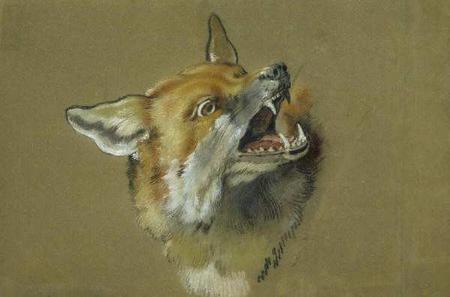
Jean-Baptiste Oudry (French, 1686-1755): Frightened Fox, perhaps 1740s?, pastel on faded blue paper, 10 1/2 x 16 5/8 inches, Staatliches Museum Schwerin, Schwerin, Germany
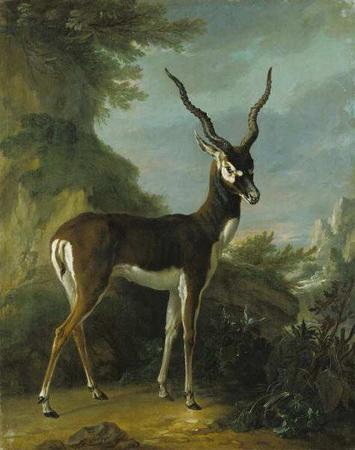
Jean-Baptiste Oudry (French, 1686-1755): Indian Blackbuck, 1739, oil on canvas, 63 3/4 x 50 13/16 inches, Staatliches Museum Schwerin, Schwerin, Germany
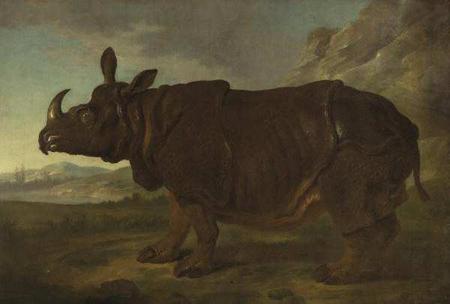
Jean-Baptiste Oudry (French, 1686-1755): Rhinoceros, 1749, oil on canvas, 120 1/2 x 178 3/8 inches, Staatliches Museum Schwerin, Schwerin, Germany
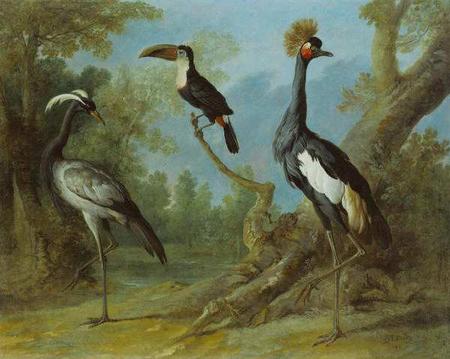
Jean-Baptiste Oudry (French, 1686-1755): Domoiselle Crane, Toucan, and Tufted Crane, 1745, oil on canvas, 51 3/16 x 63 inches, Staatliches Museum Schwerin, Schwerin, Germany
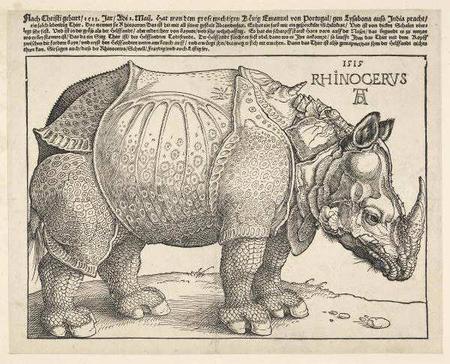
Albrecht Dürer (German, 1471-1528): The Rhinoceros, 1515, woodcut and letterpress, 8 7/16 x 6311 3/4 inches, The British Museum, London, England, © The Trustees of The British Museum
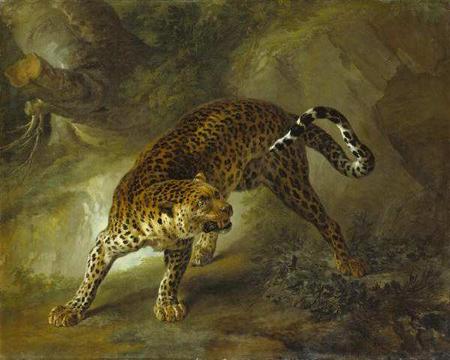
Jean-Baptiste Oudry (French, 1686-1755): Leopard, 1741, oil on canvas, 51 9/16 x 63 inches, Staatliches Museum Schwerin, Schwerin, Germany
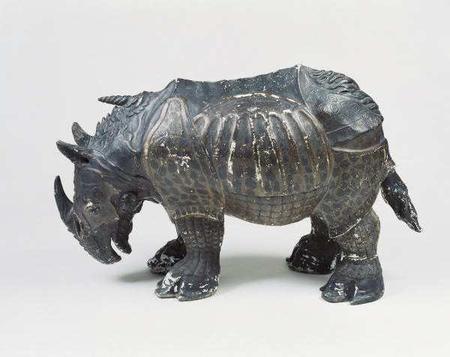
After Albrecht Dürer (German, 1471-1528) and Johann Gottlieb Kirchner (German, born 1706) and Meissen Porcelain Manufactory (German, active 1710 - present day): Rhinoceros, about 1731, hard-paste porcelain with oil paint, 26 3/4 x 43 1/8 x 18 9/16 inches, Staatliche Kunstsammlungen Dresden, Porzellansammlung, Dresden, Germany
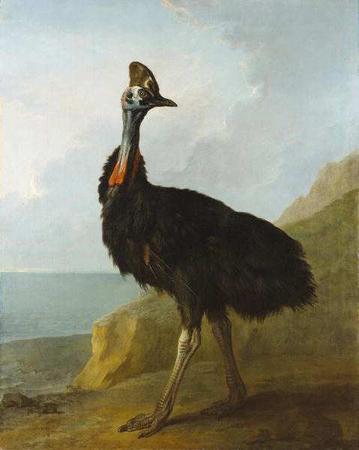
Jean-Baptiste Oudry (French, 1686-1755): Cassowary, 1745, oil on canvas, 63 3/4 x 50 3/16 inches, Staatliches Museum Schwerin, Schwerin, Germany
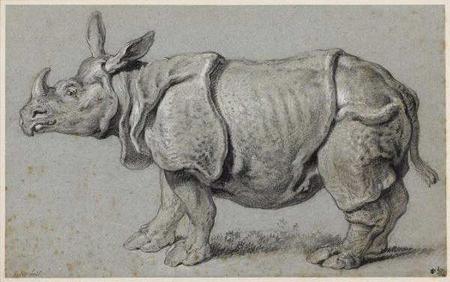
Jean-Baptiste Oudry (French, 1686-1755): A rhinoceros; in profile to left, about 1750, black chalk heightened with white chalk on blue paper, 10 7/8 x 17 1/2 inches, The British Museum, London, England, © The Trustees of The British Museum
2.
August 23, 2007, 3:00 AM
Yes, definitely portrature. He has embued them with emotive human qualities - perhapes his own. This is apparent in his drawings where there appears to be a tension between illustration and animation. They all seem light on their feet, despite the stillness. The environments that the animals are painted in look quite out of place and somewhat disasociated with the main charactors. The use of a backdrop was typical of the time and most of these are good examples of this trend.
3.
August 23, 2007, 4:44 AM
They have a hidden comical quality. The Blackbuck is a glamor shot, the three birds a vaudville routine, the Rhino a wanted poster, the Cassowary one of those aristocratic crones Goya used to paint and the Leopard has mistaken his tail for a snake.
4.
August 23, 2007, 5:43 AM
These are very elligant paintings. I haven't come across Jean-Baptiste Oudry before as i'm more into modern art but these are attractive works of art.
1.
Jack
August 22, 2007, 3:16 PM
The blackbuck and all the birds look quite elegant or chic in a very French, very 18th century way. They might as well be people.